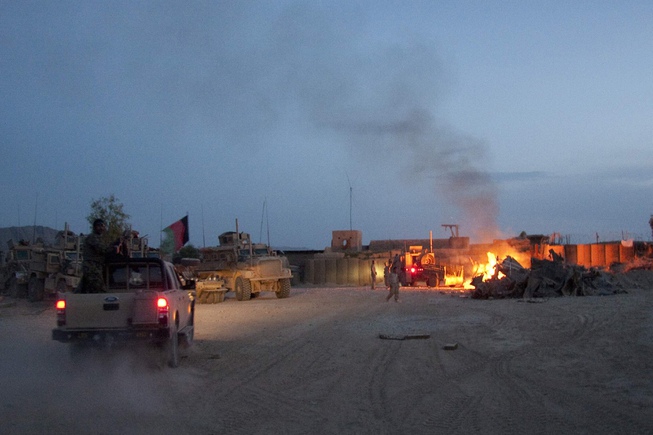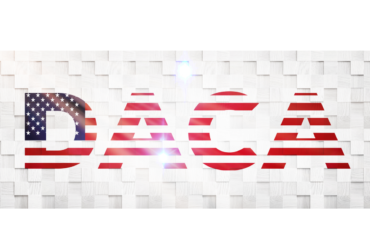Over the years, thousands of combat veterans in the United States have said that they got sick because they were exposed to dangerous chemicals while fighting.
But many of these soldiers or their family members had their insurance claims turned down because they couldn’t prove that their illnesses were related to their time in the military.
From Agent Orange used in the Vietnam War to so-called “burn pits” used to get rid of waste at military bases during U.S. engagements in the Middle East and other chemical exposures in between, veterans have been more likely to get high blood pressure, pulmonary disease, and a long list of cancers.
But thousands or even millions of former service members across the country will soon get help.
U.S. Sen. Catherine Cortez Masto, D-Nev., spoke to dozens of veterans at an American Legion post close to downtown Las Vegas on Friday about making it simpler for them to obtain medical care from the U.S. Department of Veterans Affairs. She said that the department wants to make sure that they are taking care of not just our service members and veterans, but also their families. “Unfortunately, we’ve had to work for years to open it up to our veterans and have access to this”, she said. “And that is what we have done now. Therefore, I want to make sure that our warriors use it and benefit from it.”
The Promise to Address Comprehensive Toxins Act (PACT Act), which was passed into law in August and took effect in January, received support from 86 senators, including Cortez Masto.
The bill is the biggest change to VA health care in more than 30 years, and it could help the more than 5 million veterans who may have been exposed to harmful chemicals while in the military.
The VA says that it makes more people eligible for health care who fought during the Vietnam War, the Gulf War, or after September 11, 2001. It also adds more than 20 new possible conditions linked to burn pits and other toxic exposures, as well as more places where Agent Orange and radiation may have been used, such as Thailand, Guam, American Samoa, Laos, Cambodia, or Johnston Atoll.
A “game-changer,” in the words of Bill Dolan, national executive committeeman for Disabled American Veterans, is adding hypertension to the list of ailments covered for Vietnam veterans.
This measure, he continued, “is a landmark for Vietnam veterans.” “The (PACT) Act represents a significant shift in how we will be able to care for veterans who have been exposed to hazardous materials and toxic chemicals. Additionally, it is another step toward ensuring that this nation honors its commitment to care for all the valiant men and women who serve the nation and defend our freedom.
According to Bill Caron, CEO of the VA of Southern Nevada Healthcare System, having these health issues “presumptive” helps applicants by reducing red tape, saving them time and stress.
It took a long time every time you had to go back and re-file an appeal over the years, according to Caron. “A lot of us have been there.” That shouldn’t be the case, as it is presuming, now, should it?
One of the VAs in the nation with the quickest growth, according to Caron, is the one in Nevada. More than 80,000 people have already registered, and the PACT Act may qualify up to 20,000 more veterans. About 220,000 soldiers, according to the Department of Soldier Affairs, reside in Nevada. This represents around 9.5% of the state’s whole population.
The law also has a part that says every veteran who signs up will get an initial screening for toxic exposure and a follow-up test every five years. And people who are qualified but are not enrolled at the VA can sign up and get screened. It also requires federal officials to study the death rates of veterans who served in Southwest Asia and the Gulf War. They must also keep an eye on the health trends of veterans who served after 9/11 and the general cancer rates of veterans.
The VA says that anyone who served in or above the airspace of Bahrain, Iraq, Kuwait, Oman, Qatar, Saudi Arabia, Somalia, or the United Arab Emirates after August 2, 1990, or Afghanistan, Djibouti, Egypt, Jordan, Lebanon, Syria, Uzbekistan, or Yemen after September 11, 2001, is eligible for new presumptions.
Cortez Masto said she understood how many people who had tried to get benefits over the years but were turned down felt. But she also wants those same people to reapply because there’s a good chance they could be covered now, she said.
“That’s the point, and that’s why we want to make them aware,” Cortez Masto said. “So get in touch. Apply. Make sure that people know how good your service is. Contact my office if you have any questions. We’ll walk you through the process and put you in touch with people from the state and the federal government to make sure you’re taken care of.”
If you were released after 9/11 but before October 1, 2013, and you want to join, you have until October 1 of this year to do so. Visit va.gov/pact or call 1-800-698-2411 to find out more or to apply or make a claim.
The number for Cortez Masto’s office in Las Vegas is 702-388-5020.
Cortez Masto said, “The PACT Act gives you every right to get that access to health care.” “So let’s do it.”



